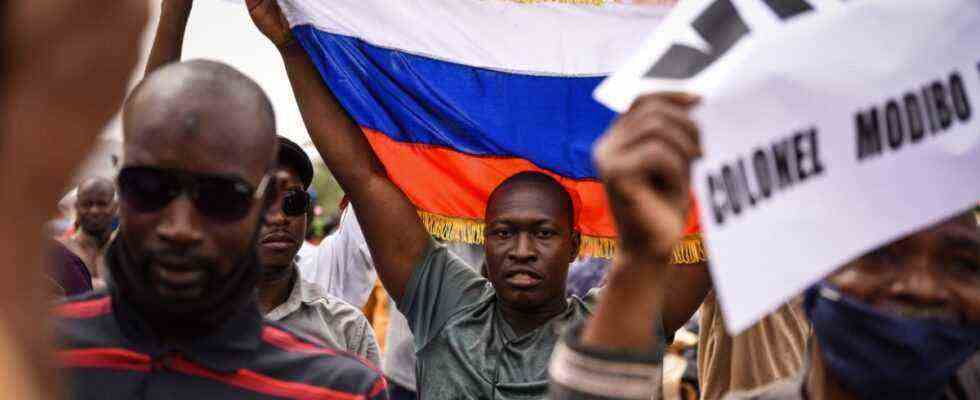When the French soldiers liberated the legendary desert city of Timbuktu from the Islamist terrorists in January 2013, the population cheered them. The commanders allowed themselves to be led through the alleys of the mystical mud town during the night, mosques, palaces and libraries to be shown. The officers are said to have had damp eyes.
Almost eight years later, on December 15, 2021, the French troops withdrew again. There were no tears, the streets remained empty, which was not a bitter deduction because in the Malian capital Bamako a few hundred kilometers further anti-French demonstrations are now part of the weekly routine. In Timbuktu, a French officer spoke a few sober words, then the Malian troops were symbolically given the key to the military base, from which they were supposed to maintain security and order in the chronically insecure north of the country.
The Malian soldiers just passed the key on, and for a few days there have apparently been Russian mercenaries in the facilities that the French had helped to set up. European diplomats in Bamako confirm that the Wagner troops have been coming into the country for a few days, the French newspaper Le Monde speaks of 350 mercenaries who did not have to go through the usual border controls at the airport when they entered the country, but were handled inconspicuously at the end of the runway. Mali’s government has so far only admitted an official Russian training mission, and the mercenary force does not even exist for the Kremlin.
The mission had been announced for months. The relationship between Mali and the former French colonial power had steadily deteriorated. After the Malian military put on a coup for the second time within a short period of time in May 2021, Macron announced the reduction of the French army’s anti-terrorism operations “contribute. A little later, the Malian junta brought the Wagner group into play. Initially it was more an option for negotiations with France, later as a real possibility.
Rewarded with raw materials
The operation in Mali is said to cost ten million dollars, money that the government does not have. Wagner’s business model is different anyway, the mercenaries come to failed states like Sudan or the Central African Republic, help weak governments to stay in power and are paid with raw materials for this. Gold mining licenses would be an option in Mali in return.
The arrival of the Russians is nevertheless quite popular with parts of the population in Mali. The presence of the French could not improve the security situation, the state is hardly present in the center of Mali, where militias who abuse the civilian population are in charge. The military government wants to have a stronger presence there again. The Wagner mercenaries are said to have been involved in the first skirmishes with Islamists on Monday.
France once called the dispatch of Russian mercenaries the red line. In Germany, too, the mission in Mali is viewed more and more critically. There are currently around 1200 Bundeswehr soldiers in the country for the UN mission and an EU training mission. “If we withdraw, we will leave the field to a Russian private army and endanger everything that has been achieved,” says Christian Klatt, head of the Friedrich Ebert Foundation in Bamako. “The training of the Malian soldiers has meant that the attacks on the civilian population have decreased. They can behave in a de-escalating manner and know their role better.”
But that doesn’t necessarily apply to the top of the army. The officer Assimi Goïta, who was also trained in Germany, appointed himself president after two coups. A week ago, he postponed the elections originally planned for February 2022 by six months to five years. The opposition protests fiercely, the army leadership is only interested in securing power and economic advantages, but some human rights groups also admit that if elections are imminent, a large part of the population will not be able to take part due to the difficult security situation.
On this Saturday, the Economic Community of West African States (ECOWAS) wants to discuss how to deal with Mali. According to the statutes, it is strictly against coups and could impose a border blockade and demand the freezing of the Malian accounts at the central bank of the West African states. With the risk that the country’s economy collapses and the situation continues to escalate.

